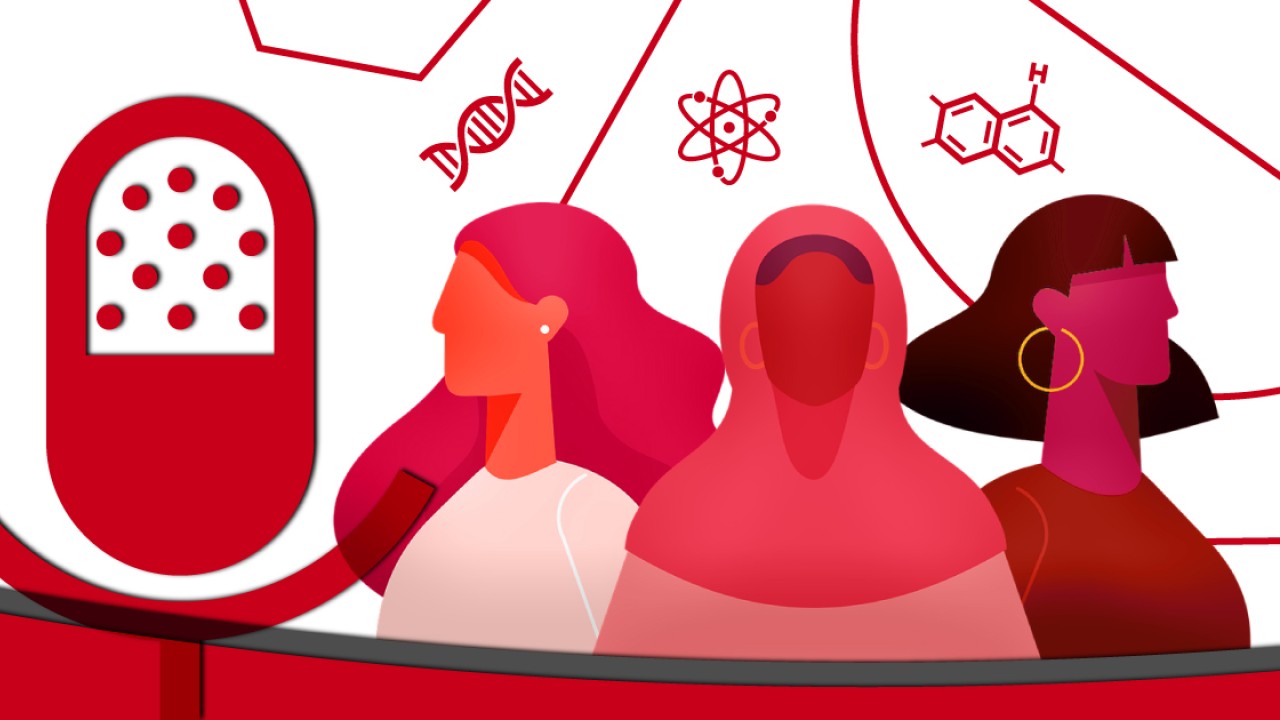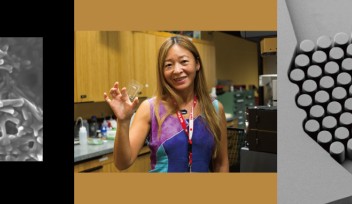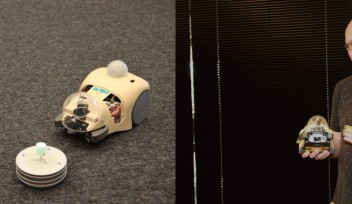Gender diversity in STEM

Subscribe to the OIST podcast on Apple Podcasts, Google Podcasts, Spotify, or wherever you listen to your podcasts.
Globally, gender diversity is lacking in the areas of science, technology, engineering, and mathematics (STEM) where fewer than 30% of researchers are women. In Japan, the number shrinks to below 20%. This issue was at the center of the most recent episode of the OIST podcast where science communicator Lucy Dickie spoke to four female scientists from OIST. They were:
- Afshan Jamshaid, who has just submitted her PhD thesis in the Energy Materials and Surfaces Sciences Unit
- Aki Masunaga, a Research Unit Technician in the Genomics and Regulatory Systems Unit
- Dr. Bogna Ignatowska Jankowska, a Postdoctoral Scholar in the Neuronal Rhythms in Movement Unit
- Prof. Amy Shen, Principle Investigator of the Micro/Bio/Nanofluidics Unit

“Different people have different problems,” said Dr. Ignatowska Jankowska, when asked about the benefits of diversity in STEM. “If there’s a certain group of people who are over-represented, they just don’t know about those other problems that exist.”
Aki added to this, saying that people with different backgrounds and experiences have different ideas and problems. “Working with people from different backgrounds allows you to be exposed to different types of thinking, which keeps your brain flexible. I think that’s important, especially in science, because we are continuously discovering new things. If you’re not flexible, that’s when you stop learning.”
Prof. Shen talked about how she’s been able to build a very diverse research Unit at OIST, with people of different ethnicities, genders, and backgrounds. “This makes a huge difference. When you tackle one problem, people from different backgrounds have very different approaches and they can learn from one another. For female researchers, from my experience, they’re very open-minded and detail orientated… they make very important contributions.”
Afshan described her unique experience, being from a small village in Pakistan where women weren’t allowed to go to school. “I went against my own culture’s values and traditions, where they say that women are not allowed in science.”
Throughout the discussion, the four researchers talked about the challenges they’d faced in their careers and how these differed across the different countries they’d each worked in. They also shared advice for younger girls interested in science and ideas for what they would like to see change.
For press enquiries:
Press Inquiry Form















